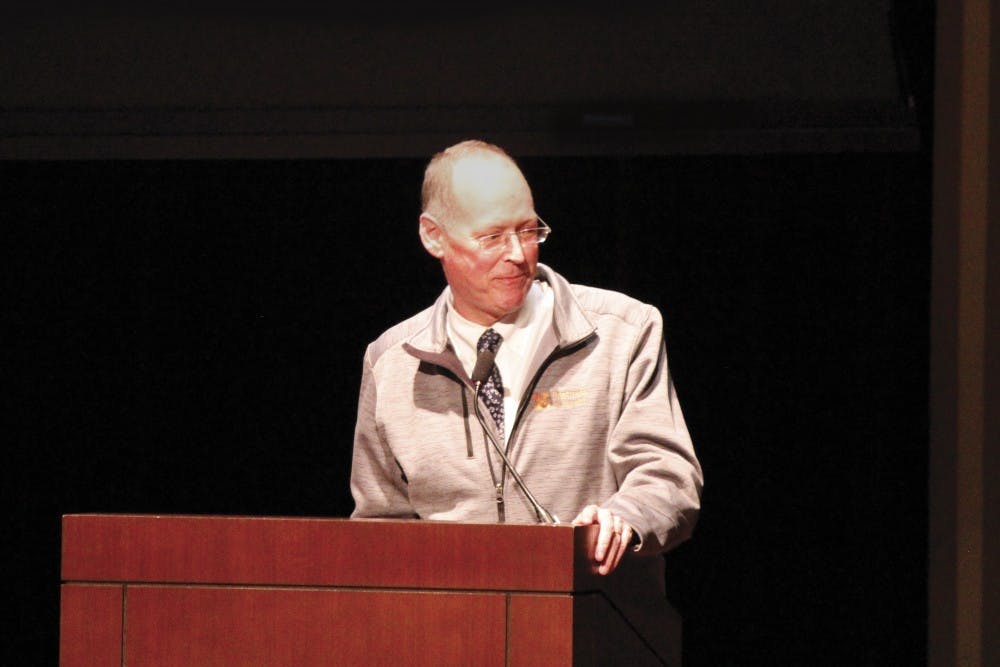Physician and anthropologist Paul Farmer called on American research universities to do more to support global health equity on Wednesday.
His talk, entitled “Global Health vs. Global Health Equity: Health, Social Justice and the Research University,” was hosted by the Center for Global Health at the Perelman School of Medicine.
Farmer, the co-founder of the nonprofit organization, Partners in Health, said what distinguished global health equity from international health is the emphasis on delivering care to patients, as opposed to just research and training.
Farmer said both academic medical centers and PIH use a model that links medical care, the training of doctors and nurses and research.
“There needs to be a research and training component, but also a service delivery piece,” he said.
One example he brought up was Sierra Leone, a country with an advanced research laboratory but lacking in medical care at the district hospital.
“If there’s only a focus on research and not on care delivery, well, we saw what happened,” he said.
The nursing schools and medical schools were shut down in Liberia following the Ebola crisis. The role of research universities could be to reopen these schools, Farmer said.
“Our universities have these resources,” he said.
He sees the role of universities as strengthening the health system, building local capacity and conducting training and research.
“Shouldn’t there be strategies by which a well-resourced research university can help respond?” he asked.
As an example of a global health success story, he talked about the steep declines in mortality rates seen in Rwanda.
“Imagine what we could do if we build on those transformations to train the new generation and to train ourselves to think about equity front and center,” he said.
Farmer added that American research universities could have a huge role in this global health realignment.
“Let me invite you to be a part of this,” Farmer said.
Kent Bream agreed with Farmer’s analysis of the balance between research, training and care.
“I agree with his numbers that that is probably out of balance,” Bream said. “But a modern research university has to think strategically in how to implement that change so we can accomplish the same things globally that we accomplish locally.”
“I thought that it was a really important way of bringing in the lessons learned from Rwanda, Sierra Leone and Liberia and really using the idea of a university teaching hospital driven model as a way to establish global health equity,” second-year Penn Medicine student Michael Spinnato said. “And I think it was done in a way that provided a clear trajectory of doing that, which is important for people that kind of need to think in terms of pragmatism.”
For students, the opportunity to hear from Farmer was inspirational in itself.
“It was just cool to see him talk live,” College junior Jesse Lu said. “Because you don’t realize how captivating he is and how good he is at making you actually care about these things.”









